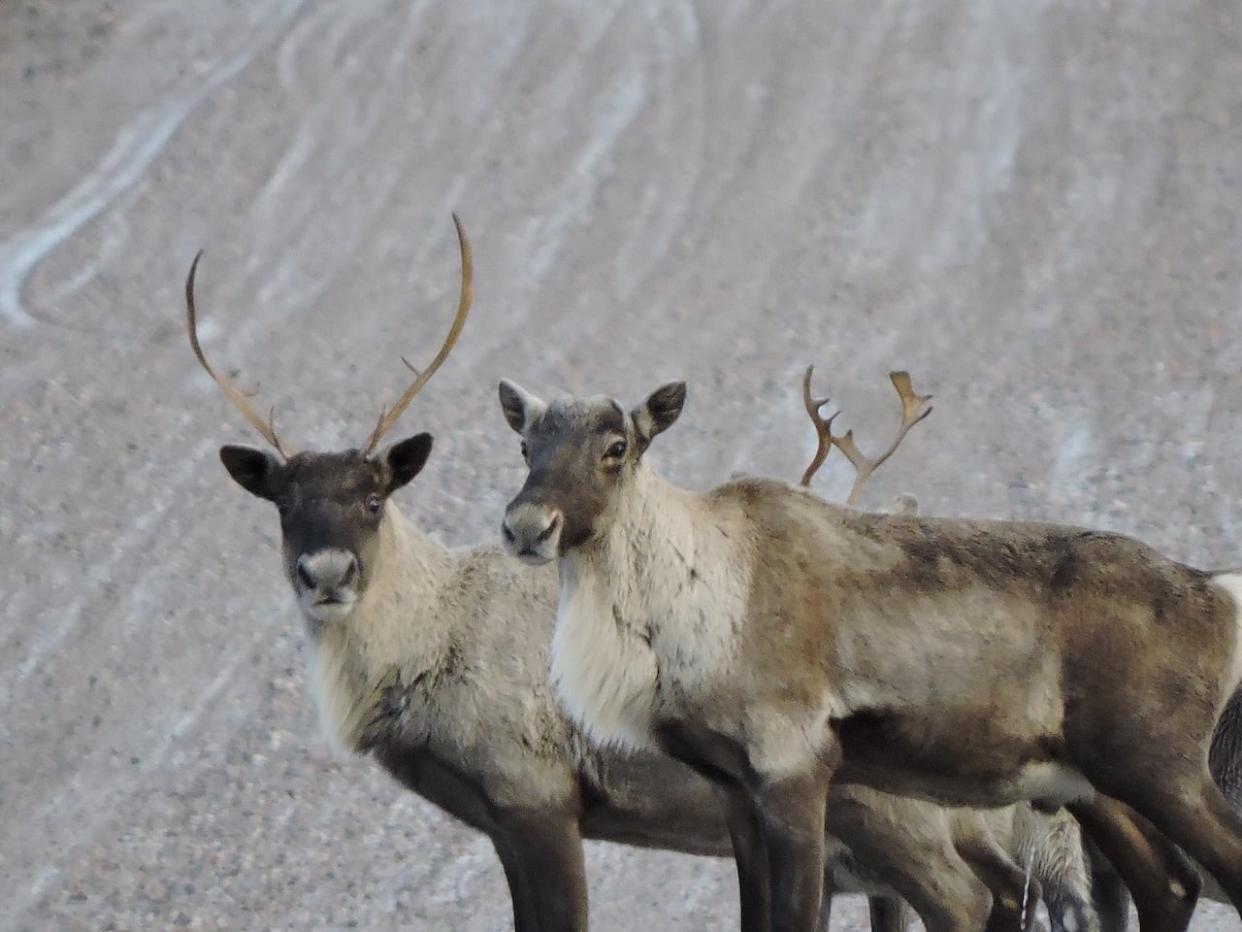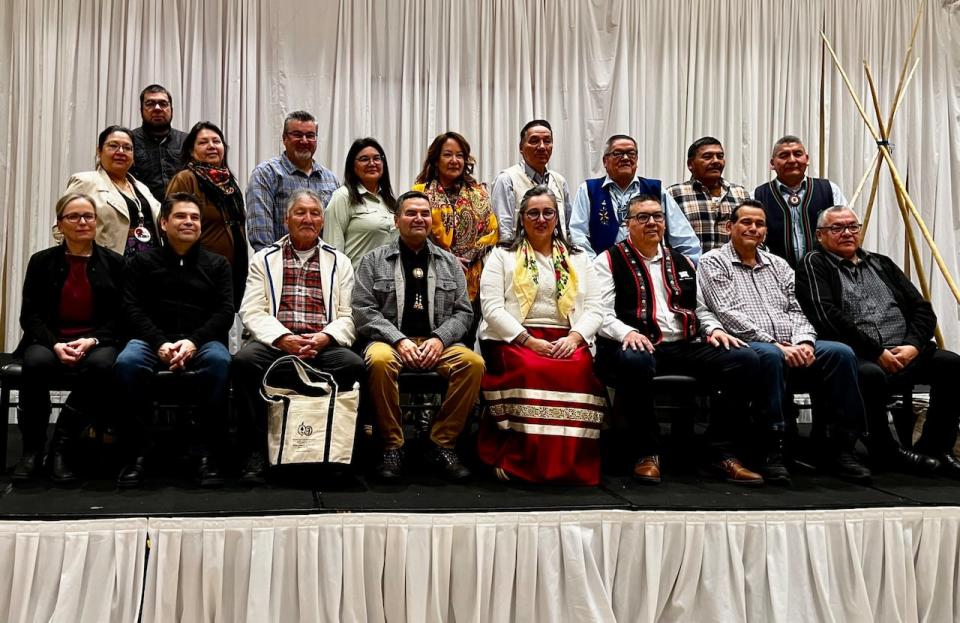Quebec Cree and Innu leaders agree to reduce caribou harvest after summer wildfires

Quebec Cree and Innu leaders have agreed to reduce the number of caribou that Innu hunters are permitted to harvest this winter on the Cree of Chisasibi's traditional territory by nearly 85 per cent as the animals recover from summer wildfires.
For each of the last two years, the Cree have gifted the Innu the permission to harvest 300 caribou from the Leaf River herd on Cree traditional territory. The nation-to-nation agreement is called the Maamuu nisituhtimuwin/ Matinueu-mashinaikan atiku e uauinakanit, which translates to "mutual understanding."
The agreement for 2024 was renewed at a summit held in Chisasibi, Que. on Jan. 9 and 10, where Cree and Innu leaders decided to reduce the number of caribou that Innu hunters can harvest to 50.

Cree and Innu leaders attend a summit held in Chisasibi on January 9 and 10. One of the subjects discussed was a nation-to-nation agreement permitting Innu hunters to hunt caribou on Cree traditional territory. (Submitted by Grand Council of the Crees)
"The recommendation from our tallymen [Kiniwhapmakinch] emphasizes the importance of giving a voice to the caribou. With empathy and unity, we must offer the caribou the opportunity to recover and adapt, especially amid growing climate challenges," said Chief Daisy House, of the Cree community of Chisasibi in a release..
In Cree territory, traditional hunting grounds are organized under a trapline system, overseen by land stewards, or tallymen.
Knowledge transmission prioritized
House also said Cree leaders recognize "the vital role of the caribou for the Innu," and the spiritual and cultural significance of the hunt, adding that an effort will be made to prioritize elders and the transmission of hunting knowledge to the younger generation in this year's reduced harvest.
"Both Nations acknowledge that the vulnerability of caribou could be exacerbated by the adverse effects on their habitats resulting from the devastating forest fires of 2023," House said.
Leaders also continued to discuss a management strategy for the George River and Leaf River caribou herds at the summit.
In 2017, representatives of Innu, Cree, Naskapi and Inuit signed an agreement to protect both the Leaf River and George River caribou herds as part of the Ungava Peninsula Caribou Aboriginal Round Table (UPCART).

Chief Mike McKenzie of the Innu community of Uashat Mak Mani-utenam said the nation-to-nation hunting agreement between the Cree and the Innu is a return to how things were done by ancestors. (Submitted by Grand Council of the Crees)
Chief Mike McKenzie of the Innu community of Uashat Mak Mani-utenam leads the caribou dossier for the Innu Nation.
He said the nation-to-nation relationship between the Cree and the Innu is a return to how things were done by ancestors.
"[This] reflects what we have always been, two sovereign nations on our territories. As our ancestors have always done and taught us, we demonstrate our values of mutual aid, sharing, and respect," McKenzie said in the release.
The latest data show the George River herd is critically endangered, with an estimated 7,200 caribou, according to a joint survey in July 2022, by the Governments of Newfoundland and Labrador, Quebec and Nunatsiavut. Overall, the population has declined by 11 per cent since 2020, and by more than 98 per cent since 2001.
The Leaf River herd, which is more common in Cree territory, is healthier at 190,000 animals, but still significantly down from its numbers in 2000, when the count was more than 600,000, according to the Cree Nation Government.


